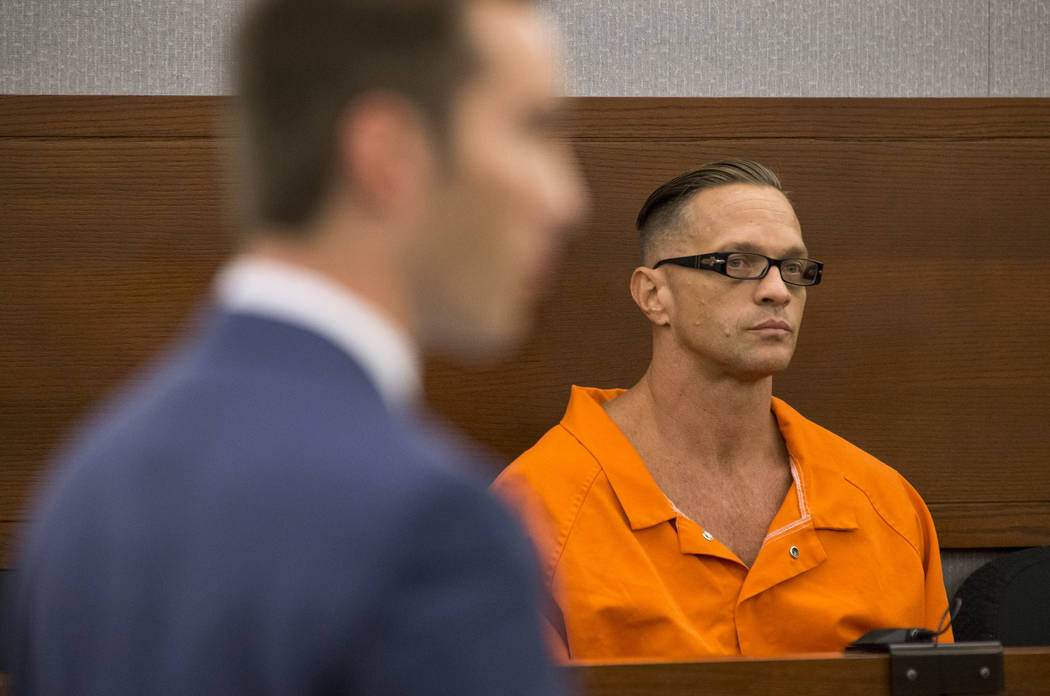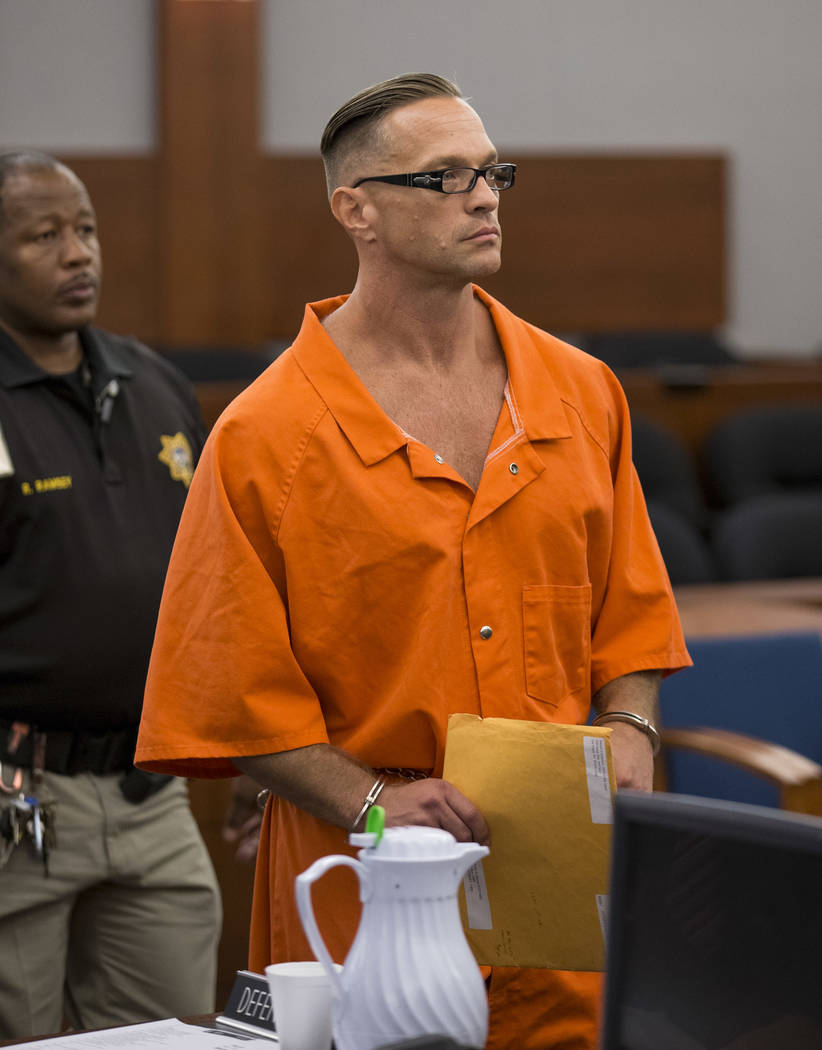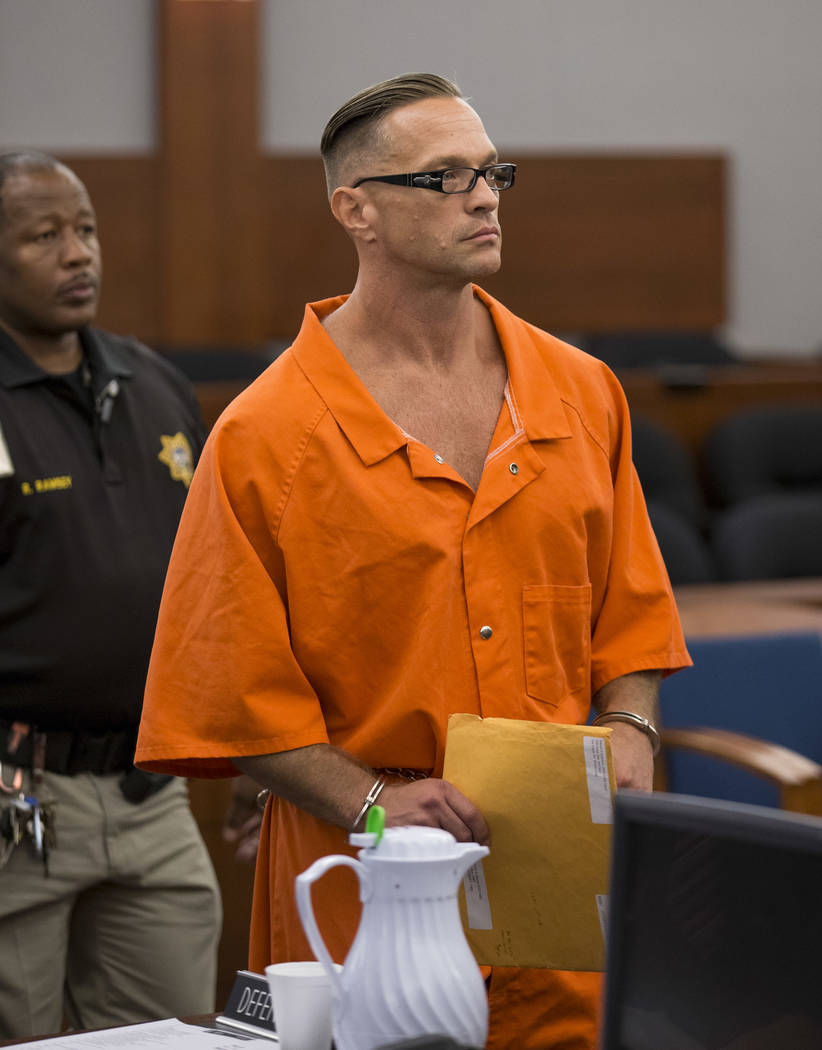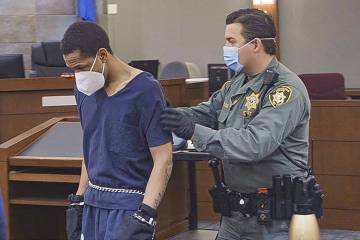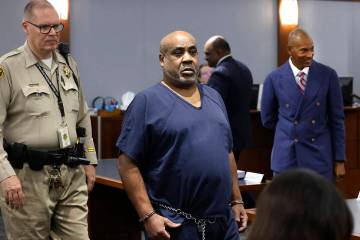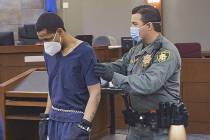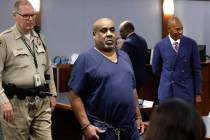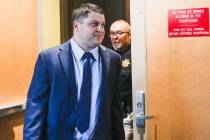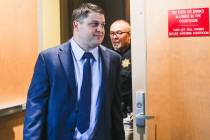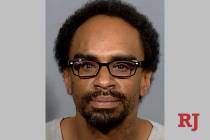Doctor questions drug planned for Nevada inmate’s execution
A paralyzing drug could cause “cruel pain and suffering” and lead to a “horrifying experience” for a condemned inmate, an anesthesiologist testified Friday, just 11 days before convicted killer Scott Dozier is scheduled to die by lethal injection.
A mixture of two drugs in the state’s proposed three-drug cocktail would be enough to kill Dozier in less than 10 minutes, Dr. David Waisel of Boston told District Judge Jennifer Togliatti, who oversaw Dozier’s trial and signed his death warrant.
While the risk of suffering would be minimized if the drugs were administered correctly, the doctor said, Dozier’s ability to verbalize his pain would be masked by cisatracurium, a skeletal muscle relaxant or paralytic.
The state’s execution protocol also calls for an attending physician to inject the inmate with diazepam, which is normally used to treat anxiety and muscle spasms; and fentanyl, used for pain.
But that protocol was designed by a doctor who since has resigned as the state’s chief medical officer, and Assistant Solicitor General Jordan Smith told the judge he did not know who had been appointed to replace the doctor.
Dozier, on Nevada’s death row for his second killing, would be the first inmate executed in the state since 2006.
“We know that doing things infrequently increases the risk,” Waisel said. “We rarely let inexperienced people practice without excessive supervision and practice so that we know risks are less likely.”
The judge also expressed concern about how the state would implement the dosage of drugs.
“It comes down to the dignity of an execution,” Togliatti said.
She asked lawyers in the case to return to court Monday.
Federal public defenders representing Dozier have argued that the Nevada Department of Corrections’ execution protocol includes a combination of drugs that never has been used in capital punishment.
Waisel said Dozier will stop breathing and die if he receives the fentanyl and diazepam.
“The cisatracurium is unnecessary,” the doctor said. “If he doesn’t receive the full dose, then the cisatracurium can hide signs of inadequate anesthesia, and it would cause harm.”
Waisel said the paralytic drug provides no benefit in an execution.
David Anthony, an assistant federal public defender, asked about a “substantial risk” of suffering from the use of the drug.
“We know that there have been botched executions for a number of reasons, but often they center on the inmate not getting full dosage of drugs,” Waisel said. “In actuality, the cisatracurium increases the risk of inhumane treatment.”
But the doctor also said the potential for suffering would be minimized if each of the drugs were administered properly.
A Clark County jury convicted Dozier in September 2007 of killing 22-year-old Jeremiah Miller at the now-closed La Concha Motel. In 2005, Dozier was convicted in Arizona of second-degree murder.
Dozier did not appear in court Friday, though he is expected to appear via video conference from the Ely State Prison for a Wednesday hearing. For more than a year, since his first letter to Togliatti dated Oct. 31, 2016, Dozier has not wavered in his desire for execution.
Togliatti said she had received a letter from one of Dozier’s young relatives, along with a scrapbook of photos and his artwork. The judge asked his lawyers to deliver the items to him, “so that he knows the court received that and there are outside people in his life trying to influence the court to stop the execution.”
Contact David Ferrara at dferrara@reviewjournal.com or 702-380-1039. Follow @randompoker on Twitter.
Related
Man awaiting lethal injection to review Nevada prison execution manual
Nevada inmate asks how he should mentally prepare for execution
Condemned man restates death wish in Las Vegas courtroom



